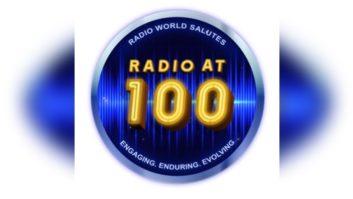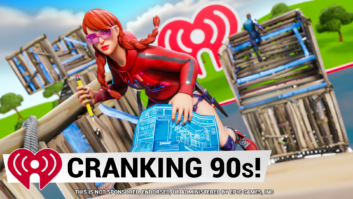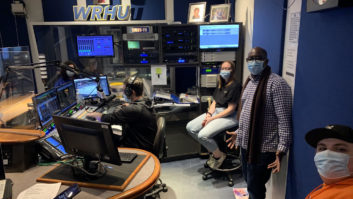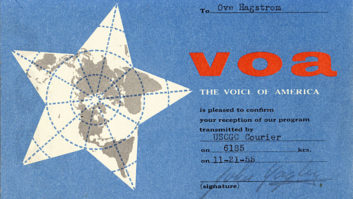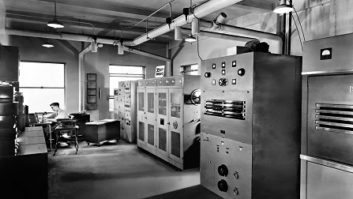Every major sport has a farm system. The minor leagues are a place where new talent can be tested and trained for bigger and better things.
Dan Vallie wondered: Why didn’t radio have such a system in place?

Bud Walters teaches during the KBA WKU Radio Talent Institute. Vallie is a 44-year broadcast veteran. He rose to programming prominence when he worked as the national director of programming for Art Kellar’s EZ Communications, which oversaw 26 AM and FM radio stations in the United States. Vallie would later get the itch to form his own company and founded Vallie-Richards-Donovan Consulting in 1988 with Kellar’s EZ Communications as his first client.
After Art Kellar had merged his company with American Radio Systems following deregulation of radio station ownership in 1996, Kellar’s company walked away with $655 million, helping to create what was the country’s second-largest radio broadcaster at that time. Kellar retired shortly thereafter and started the Kellar Family Foundation with his wife.
TALENT INCUBATOR
Vallie approached Kellar with his vision of creating a National Radio Talent System. They had talked of creating just such an incubator system many times, and Kellar gave the concept the thumbs up.
The Kellar Radio Talent Institute was born at Appalachian State University in Boone, N.C., in the summer of 2007. Unfortunately, the man who provided the financial support to launch this college-to-career connection system passed away shortly before the kickoff of the first institute that bears his name.
After six years of running the Kellar Radio Talent System at App State and seeing a success rate with over 70 percent of the graduates securing solid careers in radio or a related field, Vallie decided it was time to take the concept national.
In 2011, Vallie approached NAB Joint Board Chairman Steve Newberry with his plan, and Newberry, a native and resident of Glasgow, Ky., immediately said that he knew the next university to adopt the program: Western Kentucky University.
Newberry, Vallie, WKU’s School of Journalism and Broadcasting’s new Director Loup Langton and I met to discuss the program. Everyone was enthusiastic about the concept and plans were set in motion to launch the KBA WKU Radio Talent Institute in July 2013.
The Radio Talent Institutes are funded by individual broadcasters, broadcast companies and broadcast organizations.
This year, the cost of attendence is $365, and it includes a meal card for lunch and dinner.

FURTHER EXPANSION
With Western Kentucky University’s successful first institute under his belt, beyond the Kellar Radio Talent Institute at App State, Vallie continued to expand his concept with the creation of the Confer Radio Talent Institute at Bloomsburg University of Pennsylvania and the GAB Radio Talent Institute at Grady College of Journalism and Mass Communications at the University of Georgia.
Each branch uses radio industry professionals to teach courses at individual institutes; for example, Erica Farber, president/CEO of the Radio Advertising Bureau, is scheduled for the 2015 KBA WKU Radio Talent Institute.
Broadcasters embrace and see the importance of bringing young talent into the industry, and many come to teach sessions, including George Beasley of Beasley Broadcast Group; Dan Mason, president of CBS Radio; Bud Walters, CEO of The Cromwell Group; Steve Newberry, CEO of Commonwealth Broadcasting; John Dickey, executive vice president of Cumulus Media; Kerby Confer, the namesake of the Confer Radio Talent Institute; and Stu Epperson, CEO of Salem Communications.
WKU’s School of Journalism & Broadcasting is a Kentucky Program of Distinction recognized by the state legislature of Kentucky for special recognition and funding.
Graduates of the radio talent institutes earn their Radio Advertising Bureau Radio Marketing Professional certification. Students learn about sales, programming, music scheduling, news, sports, copywriting, on-air presentation and how to present themselves to prospective employers.
Each institute features a live radio morning show that originates from the classroom. Following the broadcast, in which students participate, the show is dissected and analyzed to better understand the elements that go into creating great morning radio.
“It’s what the industry has said for years it needs,” said Vallie. “It’s a radio talent farm system, a talent incubator of young talent that can be hired today and become the leaders of our industry tomorrow.”
The 10 days are intense, sunrise to sunset. In addition to the class sessions, students get together with industry leaders for a social hour each evening before heading home to do their homework for the next day. The social hours really bond the students with the broadcasters. Stories are shared that pull back the curtain on our exciting industry. Students and broadcasters come away from the experience energized.
If you would like to bring this concept to your area of the country, you can learn more by going to NTRS website: www.nationaradiotalentsystem.com, or by contacting Dan Vallie at (868) 262-1502.
If you need talent for your radio operation, you’ll find full student biographies, air checks and more at the NTRS website. If you know talented interns at your radio station who want a career in radio, encourage them to apply to one of the radio talent institutes.
Dick Taylor is a Certified Radio & Digital Marketing Consultant and assistant professor of broadcasting at Western Kentucky University in Bowling Green, Ky. He is director of the KBA WKU Radio Talent Institute and remains on the board of the New Jersey Broadcasters Association. He receives a small stipend for serving as the director of the institute from NRTS and WKU’s School of Journalism & Broadcasting for coordinating this program at the university.








